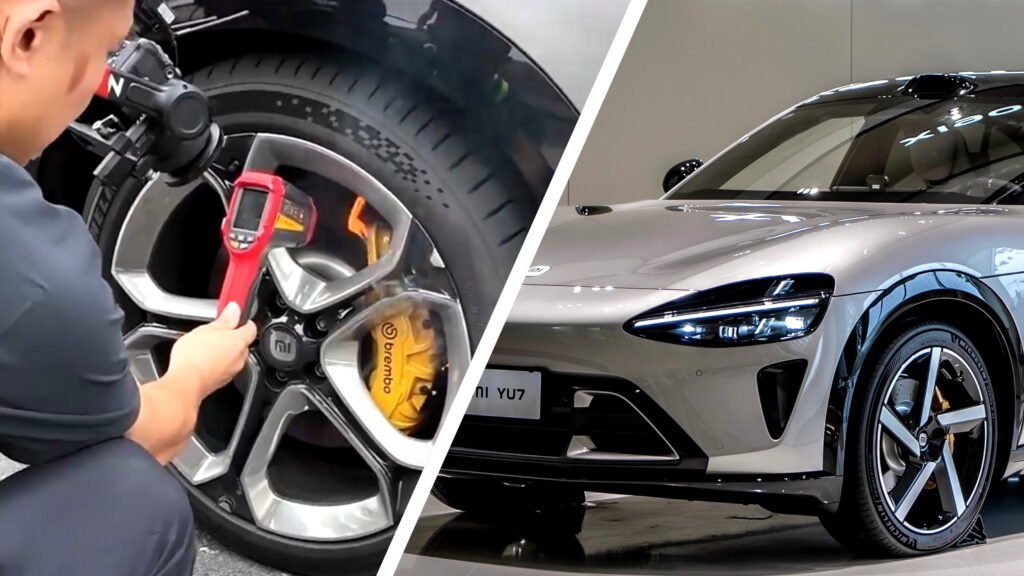

- A new Xiaomi YU7 Max’s brakes caught fire on track, reaching over 600°C under heavy use.
- The brand says organic materials in the pads ignited, but braking function remained intact.
- The SUV reportedly wasn’t using regenerative braking, increasing strain on friction brakes.
Things are looking pretty bright for Xiaomi these days, but even a hot streak hits a bump now and then. Fresh off an impressive Nürburgring showing by the SU7and a hefty 289,000 pre-orders for its upcoming SUV, the YU7, the company now finds itself doing a little damage control.
This time, it’s about a different kind of heat; specifically, the kind coming off the YU7 Max’s brakes during a track test for the media that raised a few eyebrows. Here’s a quick look at what happened and how Xiaomi is responding.
Read: Xiaomi SUV’s Tesla-Beating Pricing Sparks Frenzy With 289,000 Orders In An Hour
Last Friday, a video of a YU7 Max in a race track pit lane with brakes on fire surfaced. That’s not a great situation since this is the brand’s high-end super SUV that makes 682 horsepower (691 kW) and 639 lb-ft (866 Nm) of torque from a dual-motor setup. Naturally, this provides plenty of oomph, but it must be accompanied by great brakes, because inevitably you also need to slow down or come to a halt at some point, right?
In the video, we see technicians standing inches away from the open flame on a caliper as one measures the temperature. According to the device he’s using, the brake pads were sitting at 619 degrees Celsius. That’s 1,146 degrees Fahrenheit, or just 50 or so degrees shy of where aluminum begins to melt.
Notably, these flames aren’t the same type that we’ve seen in the past from supercars sporting carbon ceramic setups. Instead, Xiaomi’s statement to CarNewsChina clarifies that these brakes caught on fire due to organic materials in the low-metallic pads.
Evidently, this is totally normal when the brakes exceed 600 degrees Celsius (1,112 F) and supposedly, it’s no big deal here because they continued to function properly.
In addition, it’s worth noting that Xiaomi says the car in question wasn’t using its regenerative brakes properly. The YU7 Max has a ‘Master Mode’ with ‘Enhanced Energy Recovery.’ When using that system, the friction brakes don’t have to do as much work since the regen can provide up to 0.2G of braking force.
Instead, it seems that this YU7 was relying solely on the friction brakes. Given that it weighs some 2.3 tons, it’s no wonder the brakes were pushed to their outer limits.
Interestingly, this situation seems separate from the major brake failure seen on other Xiaomi cars. In cases from late last year, two different SU7 sedans had major crashes when their brakes failed completely. Those instances appear related to brake components not intended for track use at all. In contrast, the pads and rotors on the YU7 in this new video are up to the task.
Credit: Dongchedi


